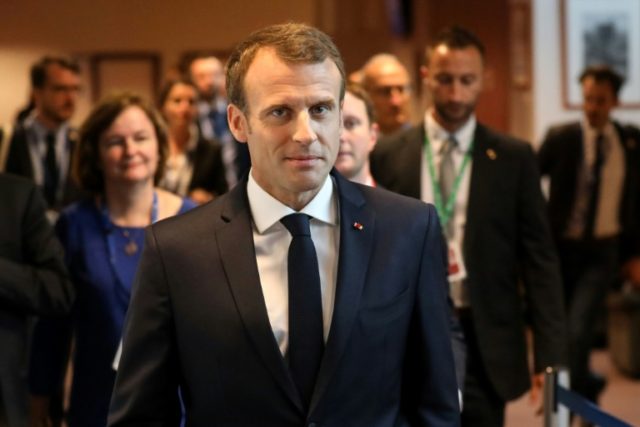Brussels (AFP) – EU leaders tackled watered-down proposals to reform the euro single currency on Friday, with an ambitious plan for a eurozone budget wanted by French President Emmanuel Macron left on the sidelines.
The discussion fell on the second day of a two-day summit that was largely dominated by Italy’s ire on migration, which overshadowed all other topics, including the eurozone and Brexit.
EU President Donald Tusk, who organises summits, invited non-euro members to the Friday talks, in a show of support for smaller countries worried about Franco-German dominance.
The bloc’s 27 leaders, meeting without Britain, largely worked off proposals set down with great pomp by France and Germany, known as the Meseberg Declaration after the site of a recent meeting between Chancellor Angela Merkel and President Emmanuel Macron.
Europe’s twin engines of EU unity, France and Germany make up nearly half of the eurozone economy, and a compromise by them usually leads to a deal among the single currency’s 19 member countries.
But smaller members, led by the Netherlands, have voiced their irritation at having the EU’s future announced from on high by the bloc’s biggest powers, especially a proposal for eurozone budget.
National governments have for months been mulling the French proposal to create some sort of budget capacity for the single currency bloc which could be used in case of crises or economic shocks.
Even if modest, Macron sees a eurozone budget as a symbolic step towards a more centralised and mutually supportive Europe.
“I hate symbolic levels. This is real money from real taxpayers,” Dutch Prime Minister Mark Rutte said after the talks.
“What is a eurozone budget? I would argue that at the moment that we already have a eurozone budget which is the 200 billion euro (EU budget),” he added.
Fiscal hardliners, usually led by Germany, fear an unnecessary transfer union, with disciplined countries in the north propping up over-spenders to the south.
But in Meseberg, Merkel gave it her quiet backing and the EU commission has proposed a scaled down version — building a budget of just 55 billion euros.
The reforms discussed on Friday also included overhauling the European Stability Mechanism (ESM), which oversees bailouts to troubled member states, such as Greece, into some sort of European Monetary Fund.
But Europeans are still at odds over the exact mission of this future body and nailing down the details has been delayed until December.
Leaders also agreed to keep talking about forging a European-wide deposit insurance scheme that has been bitterly opposed by Berlin for years in the belief that Germany would be on the hook to save fragile banks in countries such as Greece and Italy.

COMMENTS
Please let us know if you're having issues with commenting.